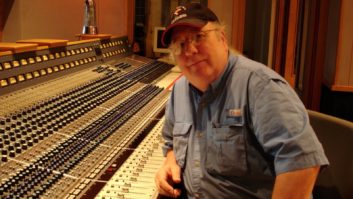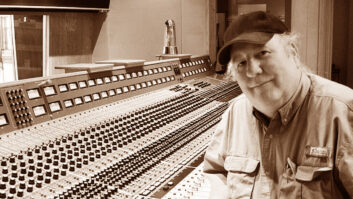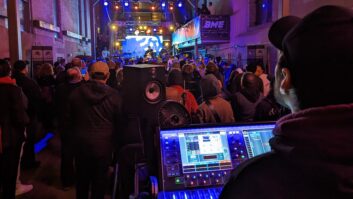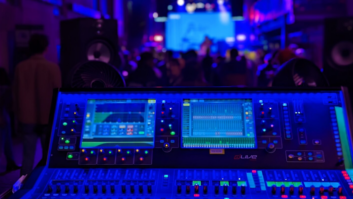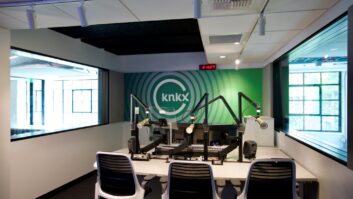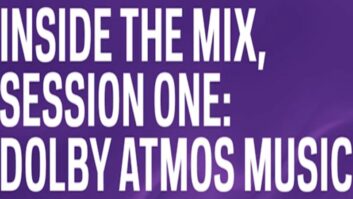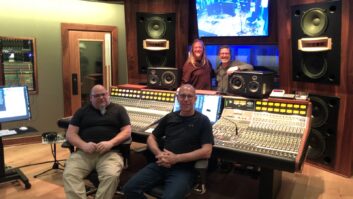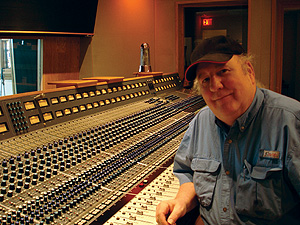
How were you personally affected by the floods?
I was speaking at Merlefest that weekend and D’Addario, one of the vendors, was tied to the Internet, and I saw pictures of the houses floating by and the trucks stopped on Interstate 24. When I came home, there was no power, and my exit—exit 199 on the west side of Nashville—that was it. Nothing was going west on Interstate 40, nothing was going north or south on Interstate 24 or 65. There were 18-wheelers everywhere. They couldn’t go any farther. It was a couple days before the water had receded enough to open the Interstates.
When you returned home, what did you see as far as damage in the recording community?
There are artists who lost the majority of their instruments, which were stored at a [rehearsal/storage/rental facility] called Soundcheck. Instruments and the equipment from a lot of major artists and touring groups was under water. Some of the historical facilities like Opryland and the Grand Ole Opry were flooded. The Opryland Hotel is probably not going to be back online until October, so the Opry is moving from venue to venue right now. They have shows Tuesday, Friday and Saturday nights. That’s amazing, with the logistics of moving the sound crew and recording equipment and putting the Opry live on the radio each night in different venues; that’s a job.
I have a lot of artist friends whose instruments and studios were severely damaged. Just for example, 6,000 homes on the west side of town were flooded. That means there were quite a few home studios—mastering and recording studios—that were flooded. One of the hardest things was dealing with sessions that were booked right after the flood. A lot of the musicians had their equipment in storage where the facilities flooded, and the musicians had to scramble because they couldn’t get their equipment or it was damaged.
Can you give me any examples of studios that you know were damaged?
I don’t want to mention names because then people will say, “Oh, that place was flooded; I’m not going to book time there.” I don’t want to encourage that mentality. But there was five or six feet of water in some studios. And artists whose road crews stored consoles in their basements—just destroyed.
How are people coming back from this?
Right now, six weeks after the flood, Downtown is back together and CMA week is going on with 50,000 or 60,000 people here. And Bonnaroo is coming off without a hitch. So that’s a good sign.
One of the reasons Nashville didn’t really hit the national news is because there wasn’t any looting going on here or any big crime wave after the flood. A slogan came out, “We are Nashville,” and you saw this on TV: Church groups and different organizations and corporations having their employees take off to join teams in different parts of the city and the surrounding counties. They helped victims move possessions out of their homes, take the wallboard out up to the level where the water was and strip out the floors because the sewers overflowed, so it was brown water.
The teams were made up of all beliefs, all religions, all kinds of people, and there wasn’t any strife like there could have been in other parts of the world. Different churches brought in members from different parts of the country. Some of those groups are still here. I don’t know anywhere else in the world where you would have this.
Luthiers have come in from all over the state to help repair instruments. They’re starting on the historical instruments that were in different exhibits and the ones at Soundcheck that were vintage instruments.
What has been the AES and NARAS’ part in helping musicians and engineers recover?
MusiCares is here, and they’ve stepped up big-time. AES Nashville has gotten a lot of calls, and the Nashville Engineers Relief Fund, which the Audio Masters [golf tournament] supports, are helping some people. The Nashville Musicians Union also has a fund to help musicians.
What about some of the artist-driven assistance? We’ve heard the story about Keith Urban offering to come with a broom to help with the cleanup.
Immediately within a couple days of the flood, Vince Gill had a telethon on WSM, the NBC affiliate here, and all kinds of artists came and performed and answered the phones, raising millions of dollars. There have also been many other benefit concerts, as well. Dolly Parton gave $250,000.
What else do you want the community outside to know about how the recovery is going and what’s needed?
Nashville is taking care of itself. Musicians are helping musicians. But there’s still a lot to do.
Help members of the recording community affected by the floods in Tennessee, or apply for aid: www2.grammy.com/MusiCares/NashvilleFlood Relief.
